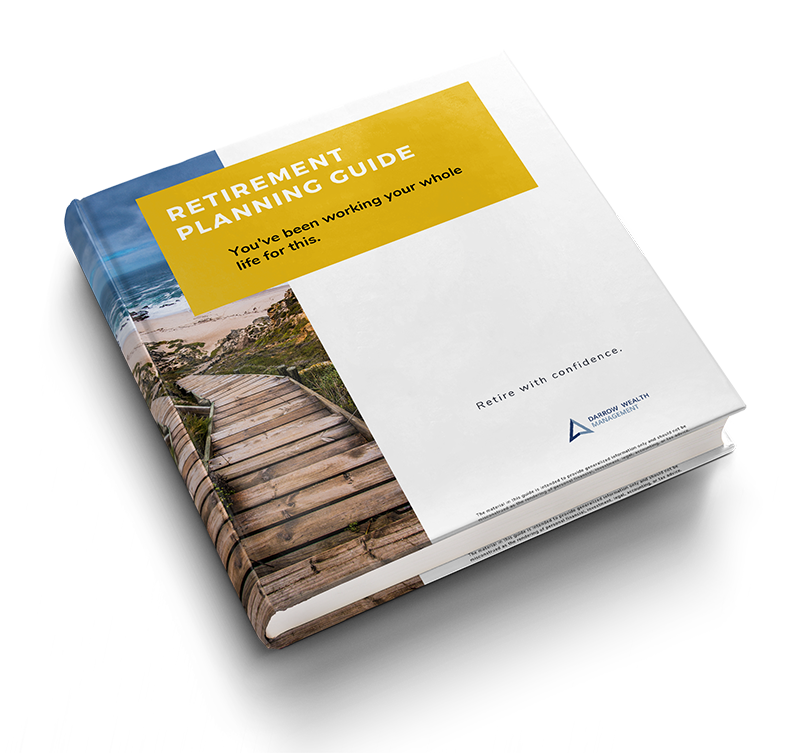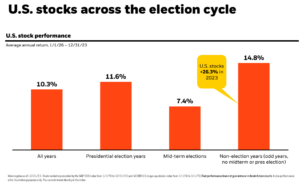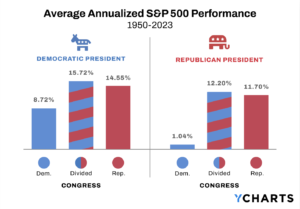Deciding whether or not to take the offer of a voluntary early retirement package or buyout from an employer is a big decision. Taking an early retirement, perhaps at 55 or 60 years old, can have a lasting impact on your finances, even when it’s the right choice. If you’ve been offered an early retirement package, here are some of the considerations to keep in mind as you weigh the pros and cons.
Should you take an early retirement package?
Companies offer early retirement packages or retirement buyouts to reduce overhead. Workers closest to retirement are usually paid the most, so employers see an opportunity to reduce cost without a major reduction in headcount.
An early retirement offer should be considered very seriously. If you accept, your retirement plan and finances could be significantly altered. If you decline, you could face layoffs or end up with a worse offer later. Fortunately, early retirement buyouts are often negotiable. And for employees already in a good financial position, it could be a great opportunity personally and financially.
This article is divided into 3 sections:
-
- What to look for in an early retirement package or voluntary buyout
- Should you, and can you afford to, take an early retirement?
- What to do after accepting a buyout offer
What to look for when reviewing an early retirement buyout offer
- Severance pay
- Health insurance
- Social Security bridging
- Pension adjustments
- Accelerated vesting of stock options
Much like a job offer, it’s important to consider an early retirement package as a whole. Since buyouts are often negotiable, you’ll want to focus your asks on the areas that will make the biggest difference to your financials.
Severance pay
How generous is the severance package? Severance is typically based on a formula tied to your tenure with the company and earnings. It may also be a percentage of your current compensation. Severance pay might be paid all at once or over a few years.
Obviously, you’ll want to get as much as possible. The general rule-of-thumb is to shoot for four weeks’ pay per year of employment. The standard severance offer is often half that.
Tax issues and penalties can arise as a result of severance pay so as you navigate your next steps, be sure to consult your personal team of advisors. In addition to a fee-only financial advisor, you should also speak with a tax advisor and employment attorney.
Health insurance
Another key aspect of an early retirement package is whether it covers medical insurance. Don’t ignore this cost, even if you don’t need health insurance. Remember, the company is trying to reduce its expenses. If you’re offered continuation of medical insurance and don’t need it because you can get on a spouse’s plan, consider negotiating so some of the cost savings goes to something you can benefit from.
If you do need health insurance, this is a very important part of your buyout package. Individuals only become eligible for Medicare at age 65. If you are younger than 65, how will you get medical insurance?
Early retirement packages with health insurance
It’s a big benefit to get an offer that includes medical insurance. Packages may include coverage until age 65 or perhaps even longer. Make sure you understand what is covered and for how long.
Options if your retirement buyout offer doesn’t include health insurance (and you need it)
In general, early retirees have five options to buy health insurance before Medicare. If you don’t plan to find another job, and a spouse’s insurance isn’t an option, your remaining choices are:
- COBRA coverage
- Public exchanges
- Private insurance exchanges
COBRA
This option usually provides an extension of your current health insurance for up to 18 months after taking early retirement. This comes with a cost, though. Employers can pass along up to 102% of the actual premium payment. If you take a buyout in your 50s, COBRA isn’t going to get you to Medicare age.
Public exchanges
Public health insurance exchanges were established by the Affordable Care Act (mostly known as Obamacare). Depending on your income and where you live, the cost of health insurance from the public marketplace can be significant.
Check costs in your area with this calculator from the Kaiser Family Foundation.
Private health insurance
The most comprehensive and flexible benefits are through private health insurance. It’s much more expensive than plans on the public marketplace and you’ll need to make sure not to miss the annual open enrollment period.
Social Security bridge payments
To sweeten the offer, some employers might offer Social Security bridging to help early retirees bridge the gap between when they stop working and when Social Security benefits could begin at age 62. Essentially, the employer pays you the equivalent amount to equal your benefit if you file at age 62.
This income may be important. As we’ll discuss in detail later, funds from IRAs can’t be taken without penalty until you turn 59 1/2.
Pension adjustments
If you have a pension, retiring early may mean taking a reduction in your benefits. Since pension income is a function of your tenure, salary, and age you start receiving payments, deciding to take an early retirement package could have a lasting impact on your finances in retirement.
To offset negative implications, companies may offer adjustments to your pension calculation to true-up your benefits as if you retired at age 65. You may also need to decide whether you want to take lifetime pension payments or a lump sum. Again, you’ll want to discuss the pros and cons with your wealth advisor.
Accelerated vesting of stock options or equity awards
If you have stock options, restricted stock awards or units, or another type of equity compensation, you know how important vesting is. Does the early retirement package include provisions to accelerate the vesting of your stock options? If not, you could forfeit all of your invested shares.
Also ask how long you have to exercise vested stock options after you leave the company. If you have incentive stock options, you will generally be able to exercise your shares up to 90 days after you leave. Non-qualified stock options may be more flexible, although you’ll need to review the terms as outlined in your company’s equity plan. The rules may change because you’re retiring or taking an early retirement, so review the plan documents and the buyout package carefully.
Should you take an early retirement buyout offer? Can you afford to retire early?
There’s a lot to think about when considering whether to accept an early retirement offer. Here are a few questions you’ll want to answer to help guide your decision:
- How will taking an early retirement impact your long-term plans?
- Is the buyout offer good enough for you to retire from working or just from this job?
- What are your sources of income without a paycheck?
- What does taking an early retirement mean for your Social Security benefits?
- How will you spend your time in retirement?
Accepting a buyout offer often means making big changes to your retirement and financial plan. To help avoid any unexpected consequences, consider seeking advice from a CERTIFIED FINANCIAL PLANNER™ professional.
How taking a voluntary early retirement package can impact your financial plan
Retiring early is hard to do even when you’ve been planning for it. Spontaneously retiring early therefore requires careful planning to make sure you get it right. There are several ways taking an early retirement can impact you financially. As you consider what’s best for you, consider the realistic possibility that you might have a hard time getting a new job, even if you want one.
Unfortunately, prolonged periods of unemployment are common for workers over 50. When possible, try to consider whether you can, or should, take the offer using the factors that are within your control, like your expenses.
Taking a buyout offer will likely impact your retirement plan. You have less time to save and the money you have needs to last longer. It’s critical that you update the assumptions in your plan to ensure you can get the lifestyle you want if you take the offer.
An early retirement package could also be a surprise to the upside. If the package is generous, you could end up ahead, especially if you end up getting a new job elsewhere.
Is the early retirement package enough to make up for loss of future income and additional retirement savings?
Assuming you don’t plan to find another job, retiring early means you can’t make any more 401(k) contributions. In addition, you’ll also miss out on any future matching, profit-sharing, or safe harbor contributions from the company. Compounding these issues, your current retirement savings now need to last longer.
If you were planning to retire in another couple of years anyway, it’s easier to make the math work. But if you’re facing retirement in your 50s, it might not be possible without major adjustments to your lifestyle, a large buyout offer, or the ability to live off of one income (assuming you’re married and your spouse is still working).
Working with a financial advisor to run projections or develop a detailed retirement plan can help you determine whether your expenses in retirement are realistic.
Where will your income come from? Penalty-free (and rule-free) IRA withdrawals don’t start until 59 1/2
Depending on when you’re approached with an early retirement offer, you may not have access to your retirement accounts without a 10% penalty. Even after retiring, money in a traditional IRA, rollover IRA, or Roth IRA can’t be freely withdrawn without incurring a 10% penalty (in addition to tax) until you turn 59 1/2.
For Roth IRAs, the account must be at least five years old, too. Another caveat for Roth IRAs: you can always withdraw your contributions (just not any growth and earnings) tax and penalty-free.
Consider your other sources of income, outside of retirement accounts. If you have money in a taxable brokerage account, you may want to consider whether it’s enough to bridge the gap. Money in a deferred compensation plan might become available to you after taking an early retirement, but check the plan documents. You might able be able to file for unemployment depending on the laws in your state.
There is one way to use funds from your IRA before age 59 1/2, it’s just not as flexible as you might like. More on that below.
How Much Do You Need to Retire at 60?
Rules for tapping an IRA or old 401(k) after taking early retirement
With restrictions, you can take money from your 401(k) plan or IRA without the 10% penalty before age 59 1/2. The terms aren’t the most flexible, but it could accomplish your goals. Called a 72(t) plan, this is the way for early retirees to get penalty-free access their retirement savings.
At a high level, you must choose one of three IRS-approved distribution methods and receive payments as calculated under that method. Periodic payments must continue for at least 5 years or until you turn 59 1/2, whichever is later. Failure to follow the SEPP rules will trigger penalties and interest. And distributions can’t stop once started, unless you die or become disabled.
Another option that might be available in some 401(k) plans (not IRAs) is the ability for individuals who retire between age 55 and 59 1/2 to take money from their account after they’ve retired and separated from service. There is no 10% penalty, but there is a mandatory 20% federal income tax withholding. Also, 401(k) and 403(b) plans aren’t required to offer this provision, so you’ll want to review your plan documents.
Early retirement can reduce your Social Security benefits
Depending on how early you retire, taking an early retirement package can reduce your Social Security checks. Social Security benefits are calculated using your average wages over 35 working years. Filing for benefits before your full retirement age (either 66 or 67) will reduce your benefits and delaying until age 70 will increase payments.
Since Social Security benefits include 35 years of average earnings, if you retire before working 35 years, the SSA will use $0 salary as part of the average. Essentially, this means if you started working at 22, you’ll need to work until at least age 57 to get a full work history. Because salary increases as we get older, working longer also means substituting high-earning years and letting years of early career salary income fall off. Only income up to the Social Security wage base is included, which is $168,600 in 2024.
Whether or not this will materially impact your retirement plan is another matter. If your spouse is the breadwinner, that alone could boost your benefits. Also, if your employer offers Social Security bridging, you might still come out on top. Also consider whether it’s better to tap retirement accounts and defer Social Security longer.
Longevity is key when considering an early retirement package
Taking an early retirement means your savings have to last even longer. Given the odds of living past 90, you could be looking at a retirement that’s longer than your working years.
Here are some statistics according to 2024 data from J.P. Morgan and Longevity American Academy of Actuaries and Society of Actuaries, Actuaries Longevity Illustrator.
Assume a 65-year-old couple are non-smokers in excellent health:
- The female has a 72% probability of living until 85 and 31% chance of living until 95
- The male has a 63% probability of living until 85 and 22% chance of living until 95
- There’s a 73% chance at least one person lives until 90 and the odds are 19% of living until 100 (that’s one in five!)
- The probability of both living to age 85 is 46%, dropping to 23% by age 90, and falling to 7% at 95
How will you fill your days?
After a long (and hopefully fulfilling) career, it can be difficult for retirees to suddenly stop working…at any age. Even when a retirement is planned in advance, retiring is often a major adjustment and should not be discounted.
When the decision to retire is not of your own making (not really anyway), it can make the transition harder. Particularly if you’re still in your 50s with a working spouse and friends, you might find yourself a bit lonely or unfulfilled.
If taking the retirement package makes sense financially, it could be an opportunity to pursue some of your other interests or business ideas. Perhaps the buyout is the seed money you needed to start your own company, join a board, work for a non-profit, volunteer, or just scale back from a crazy travel schedule or long hours.
Planning to Retire Early? Now You Need to Figure Out What to Do Next
What to do after accepting an early retirement buyout offer
- Revise and update your financial plan and retirement income projections
- Carefully reevaluate your debts
- Get an investment strategy in place
If you made the decision to take the buyout offer without working with a fiduciary financial planner, consider working with one now. One of the easiest ways to run out of money in retirement is to overspend in the beginning. So it’s important not to delay this too long.
Get an income and spending plan in place
If you haven’t already run detailed retirement projections before taking the package, now is the time to do so. A Monte Carlo analysis can help stress-test your financial plan by including factors like a market downturn. A retirement plan can also help you figure out if you can afford to delay taking Social Security, buy that retirement home, and other what-if scenarios.
Don’t rush to pay off your mortgage
Not all debt is bad debt! Many homeowners rush into paying off their mortgage whether it makes financial sense or not. If you take an early retirement package, cash is going to be a coveted – and limited – resource. Use it wisely!
Use leverage to your advantage. In another words, if you can borrow money for less than what you expect to earn by investing the cash instead, it makes sense to consider a loan. Interest rates are at historic lows so before using extra cash to pay off your mortgage, consider whether it makes sense to refinance instead.
Similarly, if you’re planning to buy a retirement home or downsize, consider the pros and cons of getting a mortgage vs paying cash. When properly utilized, having debt can add to your bottom line.
Manage your investment risk
Individuals are most vulnerable to a market crash or prolonged downturn right before or just after they retire. Sequence risk is the impact the order of investment returns can have on your investment portfolio. Since your savings is typically the greatest around your retirement date, you’re also at the highest risk. Withdrawals in retirement accelerate the impact of losses on a portfolio.
Working with a wealth advisor to develop a diversified investment strategy consistent with your risk tolerance and goals is key to maintaining your lifestyle in retirement.
Here to help
Should you take an early retirement buyout offer? Considering an early retirement package is a big decision – we can help. Darrow Wealth Management is an independent, fee-only financial advisor and fiduciary based in the Greater Boston area and partnering with investors across the U.S. Learn more about Private Wealth Management or contact us today to discuss your situation.
Last reviewed February 2024










